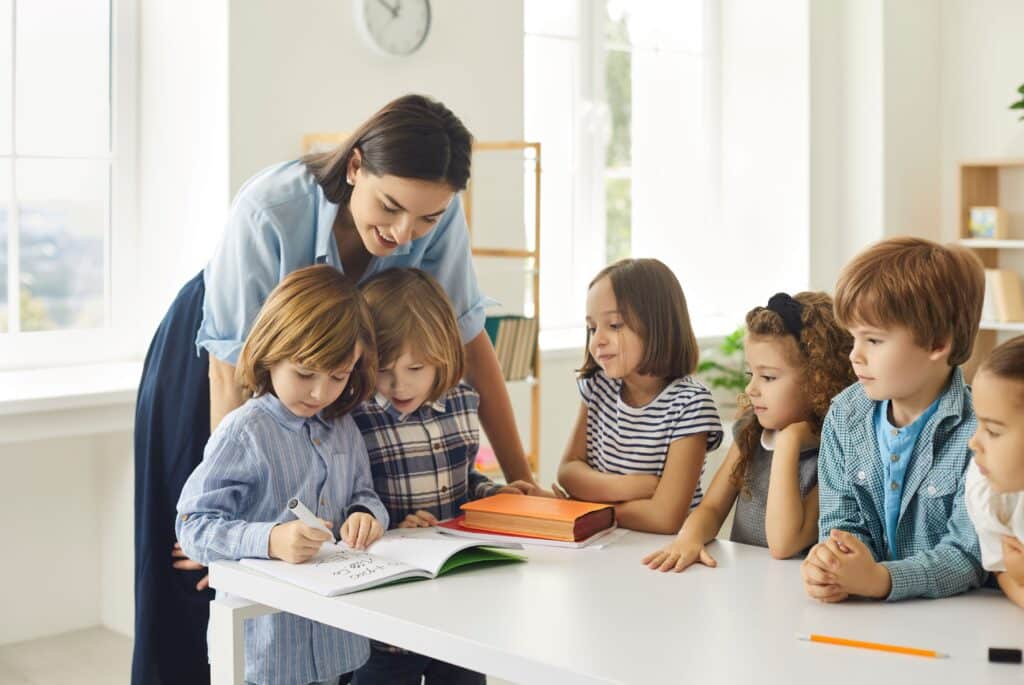There are various ranges of ages for early childhood development. Some research says this stage is from birth to eight. Some say the stage is from three to six. Others say between ages two to five. For the purposes of this article, I will be referring to children in the three to six age range as this is the preschool to kindergarten time frame.
Early childhood education is a valuable piece in a child’s development. As a former pre-k and kindergarten teacher and a current elementary principal, I understand the critical learning that takes place from age three to six. At this time. children are building a foundation of learning and are rapidly acquiring new skills that they will continue to build upon each year. Children who are enrolled in a quality early childhood education program are more prepared academically and socially and have stronger language/communication skills than those who do not experience this learning.
Nonetheless, when a group of 20 students enter a classroom, it becomes the educator’s responsibility to assess the students, create a plan for their learning and bring them to their fullest potential. I will discuss various things that early childhood educators should do to be successful and ensure all the children in their care reach their goals.
Social-Emotional Learning
Our youngest learners are never too young to begin learning about social-emotional health. It is vital for our children to learn how to take turns, share, express their feelings appropriately, recognize social cues, and self-regulate when things may not go their way. When these skills are mastered, the journey to academic mastery can be much more productive and efficient.
In order to help your young learners achieve this goal, early childhood educators should attend professional development to gain the skillset and specific age-appropriate strategies to be well equipped with age-appropriate, research-based strategies and approaches.
Use of Restorative Practices
I am a firm believer that you should not expect a child to behave in a manner that you have not taught them or modeled. When our young scholars commit an offense, it is our duty to first understand their thinking and then teach them the appropriate response before responding in a punitive nature.
According to the IRP (International Institute for Restorative Practices), restorative practices are a field within the social sciences that studies how to strengthen relationships between individuals and social connections within communities. Ensuring our students are given time to learn about expectations, diversity, cultures, and norms of different groups of people will aid in building successful relationships and will strengthen their knowledge of the world.
Mindfulness
Meditation is a great way to start the day and prepare for learning. Mindfulness routines calm the body, helps you think positive thoughts, and remind you to self-regulate if you become frustrated. Meditation is fun, even for early learners, and if used consistently, they will begin to use the techniques unprompted when they feel the need.
Involve Parents in the Learning
We all know that an involved parent breeds a stronger learner. As early childhood educators, it is important to remember that many parents could be first time parents and are looking to you for guidance on academic and behavior strategies. Even for parents who are not first-time parents, it may have been several years since they had a Pre-K or Kindergarten student and standards and expectations could have changed.
Create a system of regular communication that includes the weekly learning standards, examples of your expectations, and ways parents can support the learning at home. For kindergarten, you can do this by sending pictures of your anchor charts, samples of accurate student work, and/or video clips of your whole-group instruction.
For three and four-year olds, educators can do this through a newsletter and regular parent conferences. It is always fun to invite parents to the class to complete student work. In the early years this is fun and not stressful.
Learning Through Play
Learning through play is one of the most effective ways to teach all skills to early learners. Every skill, academic and social, can be incorporated into a play station. Kindergarten curriculum and standards are targeted and aligned with the expectation that they end the year as a reader. Play gives many more opportunities to learn and practice their skills than a worksheet or workbook.
Differentiated Learning
The best educators understand the purpose of and appropriately and consistently use differentiated learning. The magic happens in small groups or with one-on-one instructional time because students are learning on their level with a bit of challenge that encourages their growth. They respond more freely and feel less pressure than in the whole group. The best learning happens at this time and there is better retention of skills.
Embrace and Celebrate Diversity
As our students grow, they will work in groups with people of various backgrounds. Teaching them that differences are normal is one of the first lessons they should learn. Children are sponges, and they mimic what they are taught and what they hear. When we teach them that differences are what make the world beautiful, they will grow up embracing and honoring all types of people, essentially improving the environment in which they learn and how they treat others.
Use Technology, But Not Too Much
Our young scholars are tech-savvy, even at the tender ages of three, four, and five. While there is value in some online programs and games, we cannot overuse technology. Early learners should practice how to create from scratch and use the skills they have learned to solve problems.
In conclusion, early childhood educators possess the ability to create a strong and unshakeable foundation in the lives of the littles. My advice is to stay abreast of the current research on strategies and teaching practices, make your classroom student-centered, strive daily to teach the whole child and teach with love.
Have a passion for early childhood education? Explore our available early childhood education graduate programs and get started today!




